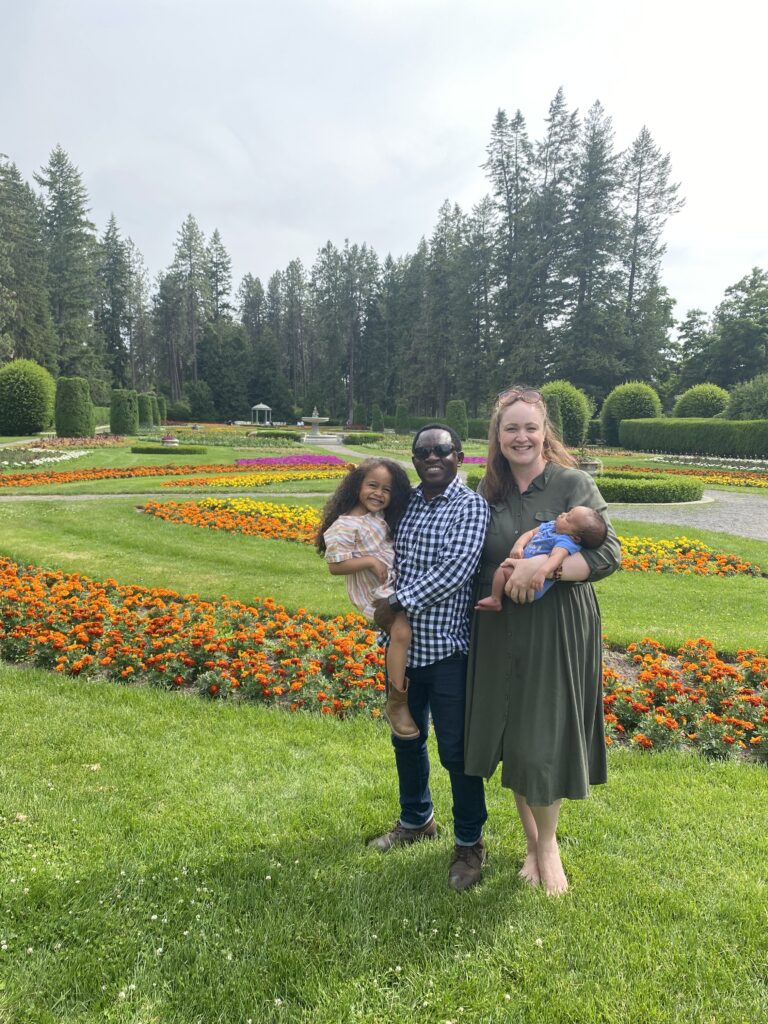Please Register to be a Life-Saving Organ or Tissue Donor
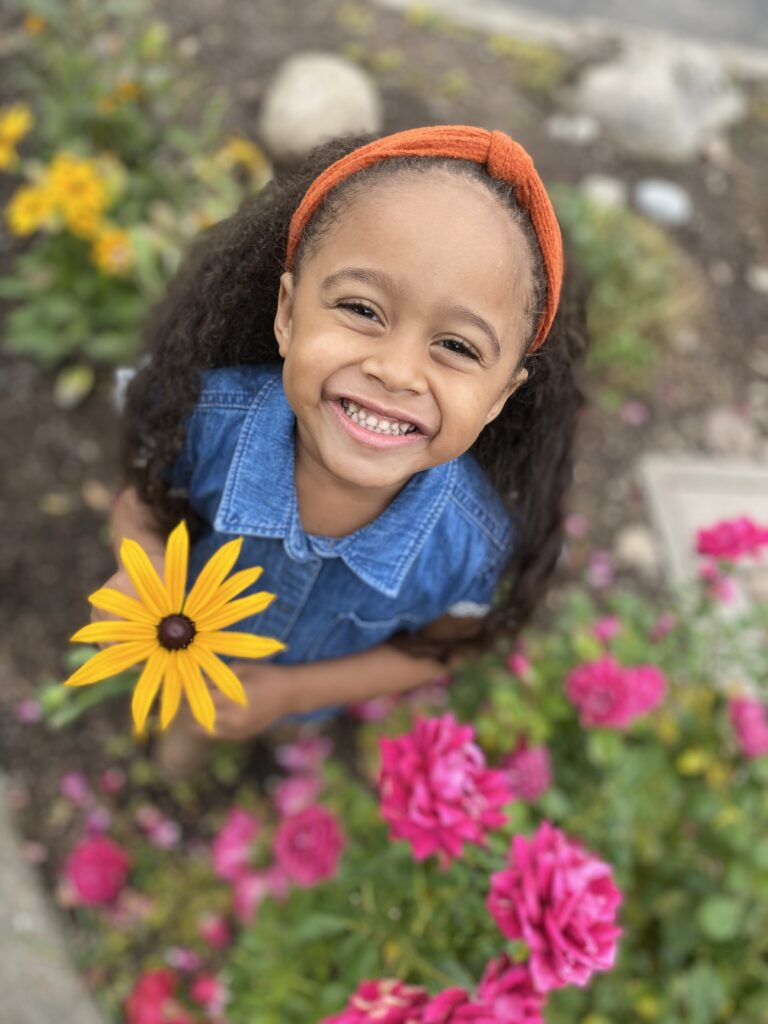
August 1, 2024 — August is National Multiethnic Donor Awareness Month. This national observance was initiated in 1998 as a single day to increase our nation’s consciousness of the need for more organ and tissue donors from multicultural backgrounds. In 2020, this nationwide effort to engage and educate multicultural communities about the need for organ and tissue donors was expanded to encompass the entire month of August.
National Multiethnic Donor Awareness Month honors communities of color who have been organ and tissue donors and encourages others to register as donors. It is about empowering multicultural communities to save and heal lives. Although organs are not matched according to ethnicity, and people of different races frequently match one another, individuals waiting for a transplant have a better chance of receiving an organ if there are large numbers of donors from their ethnic background. This is because compatible blood types and tissue markers (critical qualities for donor/recipient matching) are more likely to be found among members of the same ethnicity.
COTA’s Mwamba family of Spokane, Washington, knows these facts all too well.
Gabriel and Melissa were very excited to learn they were expecting their first child. Ruby Josephine Mwamba arrived in September 2018, and she was instantly beloved and treasured. The name ‘Ruby’ derives from a precious gemstone and has been associated with the qualities of health, strength and vitality. These characteristics would become very important as Gabriel and Melissa learned shortly after Ruby’s birth, she would soon be fighting a challenging diagnosis.
Ruby was born healthy — or so her parents believed. While she had a yellow tint to her skin, Melissa and Gabriel thought it was likely normal jaundice. But that was not the case. Baby Ruby’s initial hospital stay extended to weeks while the medical team sought to find out what her tiny body was fighting. It was decided exploratory surgery would need to be performed to ascertain a diagnosis. On November 21st, the doctors opened her abdomen and discovered she had Biliary Atresia (BA), which is a rare disease where the liver’s bile ducts are damaged. That same day, Ruby underwent her first abdominal surgery, a Kasai procedure.
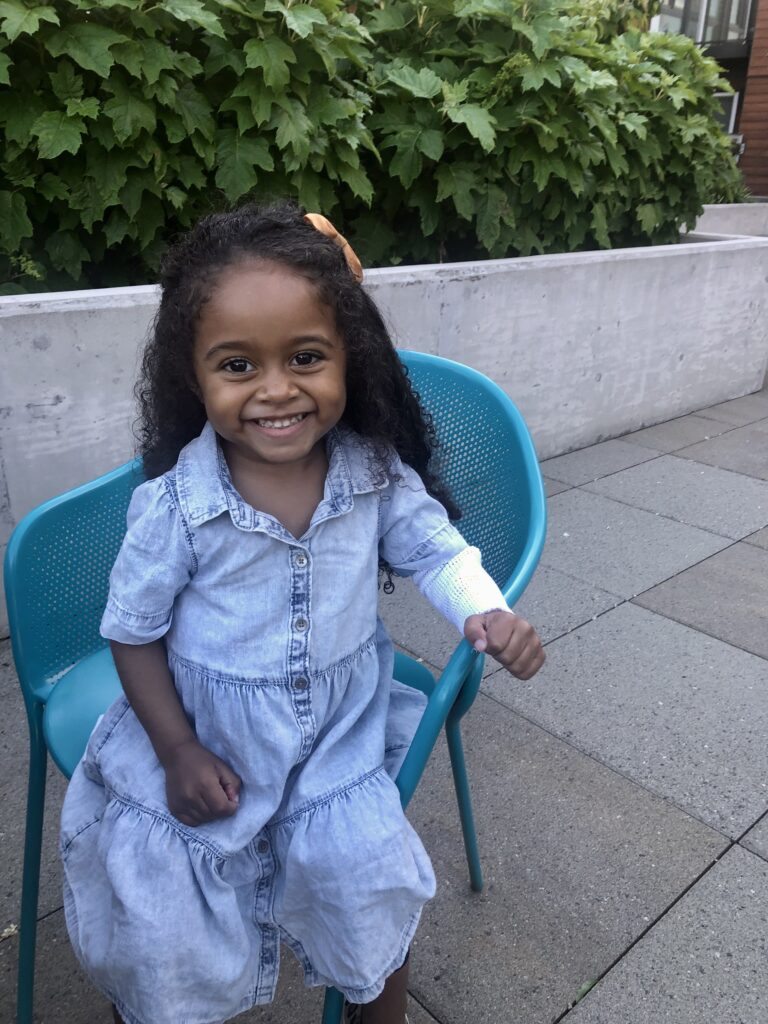
The Kasia procedure is an inpatient surgery used as a first-line treatment of BA. It involves the removal of the damaged bile ducts and gallbladder (the pear-shaped organ that stores and releases bile), after which a segment of the small intestine is sewn to the liver to restore bile flow. According to Melissa, “We were hopeful, as most BA families are who get the Kasai done within the first eight weeks of life, that this procedure would be effective and cure her issues.”
The Mwamba family was fortunate Ruby had more than two years of good liver health before her condition took a turn for the worse. Gabriel and Melissa were surprised one morning when it seemed as though Ruby had turned yellow overnight. They took her to be checked by the medical team who determined she needed to be hospitalized for observation. She was treated for several days as an inpatient to fight a suspected infection. When it was determined Ruby was not fighting an infection, the family was sent more than 300 miles from their home to Seattle Children’s Hospital in April 2021. Ruby’s liver was failing. The baby needed to be evaluated for a liver transplant.
During the family’s initial visit to Seattle Children’s Hospital, they met with doctors and transplant professionals to get a better understanding of the journey Ruby would soon be travelling. One of their many meetings was with a transplant social worker who talked with them about various aspects of a life-saving transplant that needed to be considered as they moved forward. One of those was the issue of transplant-related expenses … not just those associated with the procedure itself, but also the myriad of costs that would follow Ruby throughout her lifetime.
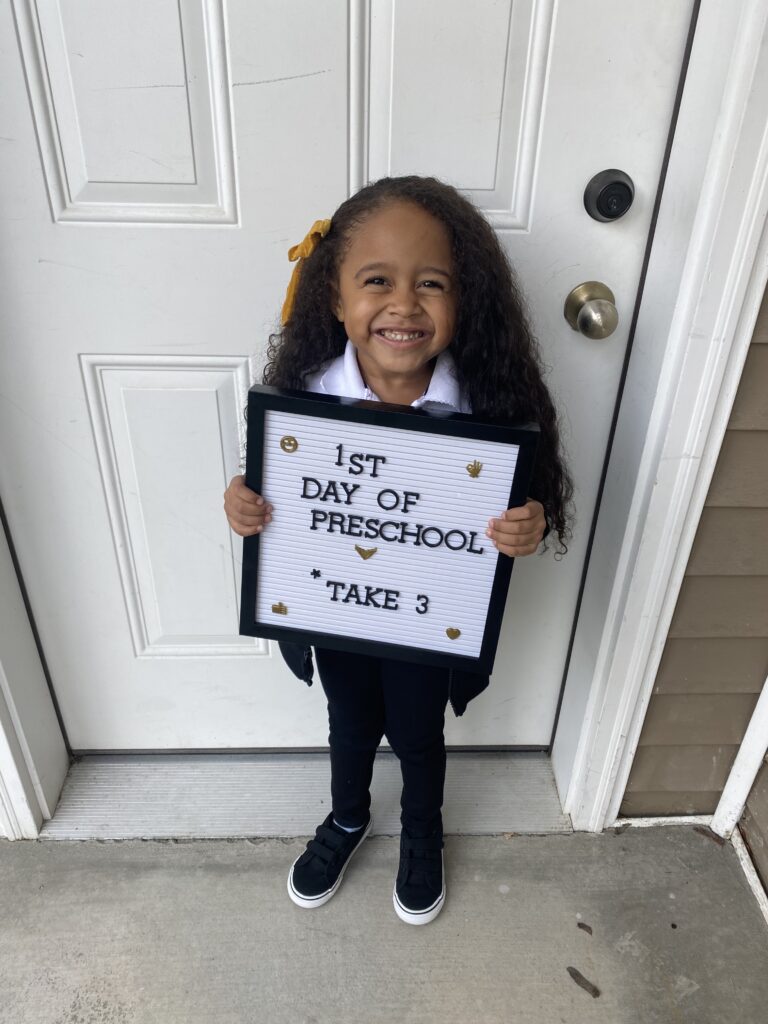
At the time of her first assessment, Ruby did not appear to be sick and was able to live a somewhat normal three-year-old life. She was able to start preschool at home in Spokane where she loved playing and learning. The Mwambas were extremely grateful for the local medical team and the liver team in Spokane who were providing excellent care and observation that allowed Toddler Ruby to attend preschool and see her friends for as long as possible while living with a liver that was declining.
The Mwambas were told livers can regenerate so they began to actively seek a living liver donor while they waited for ‘the call’ from Seattle Children’s alerting them that a deceased donor liver match had been found. A family member underwent liver testing, but unfortunately, was not a match for Ruby. Dad Gabriel then underwent testing because only one potential liver donor can be evaluated at a time. Ruby’s blood is B positive and could receive a liver from any B or O blood types. The hope was Ruby would receive a living donor liver and then both the donor’s liver and Ruby’s new liver would grow to be the perfect size for each in a matter of weeks. The Mwambas found this to be truly remarkable in so many ways and the search for a living donor provided them hope.
On June 1, 2021, Ruby was officially placed on the transplant waiting list for a new liver, but she was listed with a low PELD score. The Pediatric End-stage Liver Disease (PELD) score has been used to allocate livers for transplant in children since February 27, 2002, when the Organ Procurement and Transplantation Network (OPTN) adopted a prioritization algorithm based on the risk of 90-day pretransplant death (death without receiving a transplant). The PELD score is calculated by bilirubin and albumin levels as well as failure to grow.
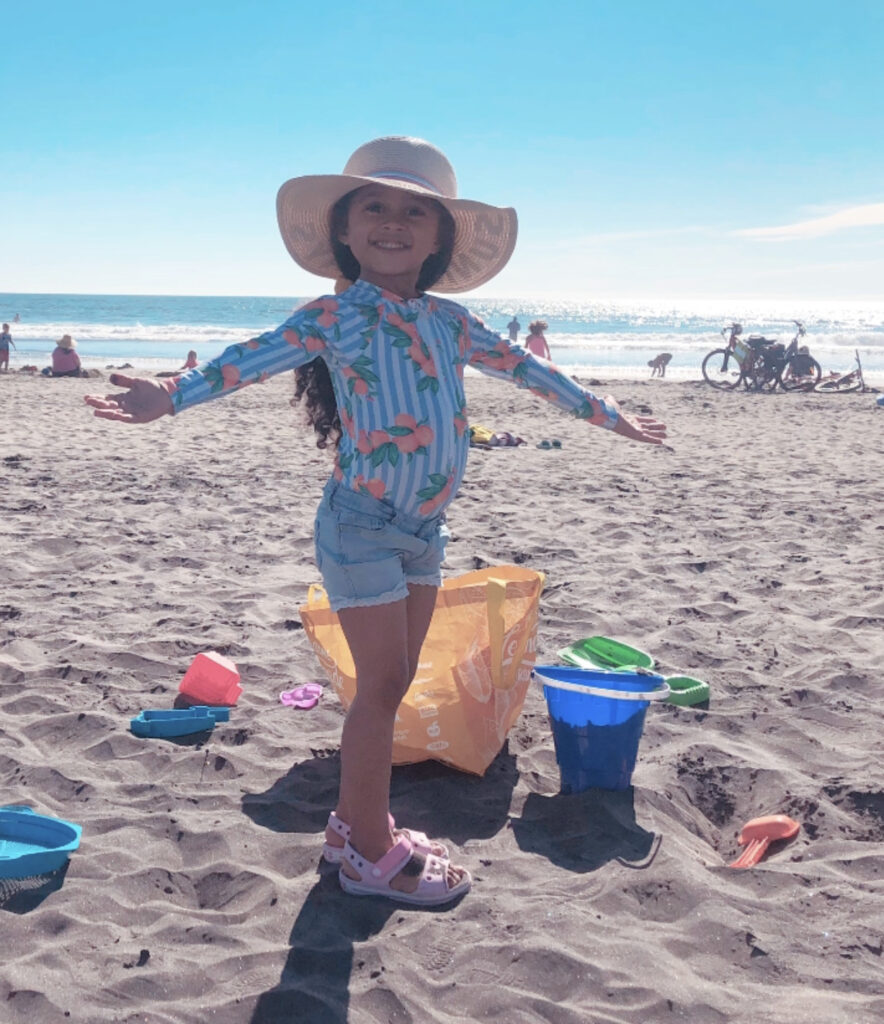
During the summer months of 2021, the Mwamba family made several trips to Seattle for further testing and monitoring of Ruby’s diseased liver. Ruby also needed special prescription medications to keep her liver as healthy as possible while they waited for the perfect liver to be found. A transplant social worker suggested they reach out to the Children’s Organ Transplant Association (COTA) to see how they might be able to help the family.
COTA uniquely understands that parents who care for a child or young adult before, during and after a life-saving transplant have enough to deal with; therefore, COTA’s model shifts the responsibility for fundraising to a team of trained volunteers. COTA is a 501(c)3 charity so all contributions are tax deductible to the fullest extent of the law, and funds are available for a lifetime of transplant-related expenses.
On August 2, 2021, Gabriel sent a Get Started (COTAGetStarted.org) notification to the Children’s Organ Transplant Association’s headquarters requesting more information. COTA’s Family Outreach Specialist placed a call to Gabriel who said their transplant social worker suggested the organization might be able to help. Gabriel’s main concerns at this point in their journey were the distance from their home to the transplant center and the fact they had used both car and air travel to date. Travel, meals, lodging and parking were going to be significant for this family. Gabriel wanted to share all of the information with Melissa before making a decision but expressed his gratitude for the organization’s mission.
A few weeks later on August 26th, their signed agreement arrived at COTA’s headquarters … the Mwamba family officially became part of the COTA Family, and Ruby became a COTA Kid.
The Mwambas posted this message on the COTA-provided website, “As Ruby has remained healthy during this process, we could not be more grateful! However, her health could change dramatically at any moment and/or we could get the call at any time saying a liver is available. This would mean our family would need to immediately move to Seattle for a while and stop our day-to-day lives to help Ruby medically adjust to a new organ. This is a scary position to be in, but we are trusting God with all of her, and our, needs. And that is also why we have decided to partner with the Children’s Organ Transplant Association to raise funds in honor of Ruby. It is a nonprofit organization where 100% of funds raised in her honor will assist with a lifetime of transplant-related expenses.”
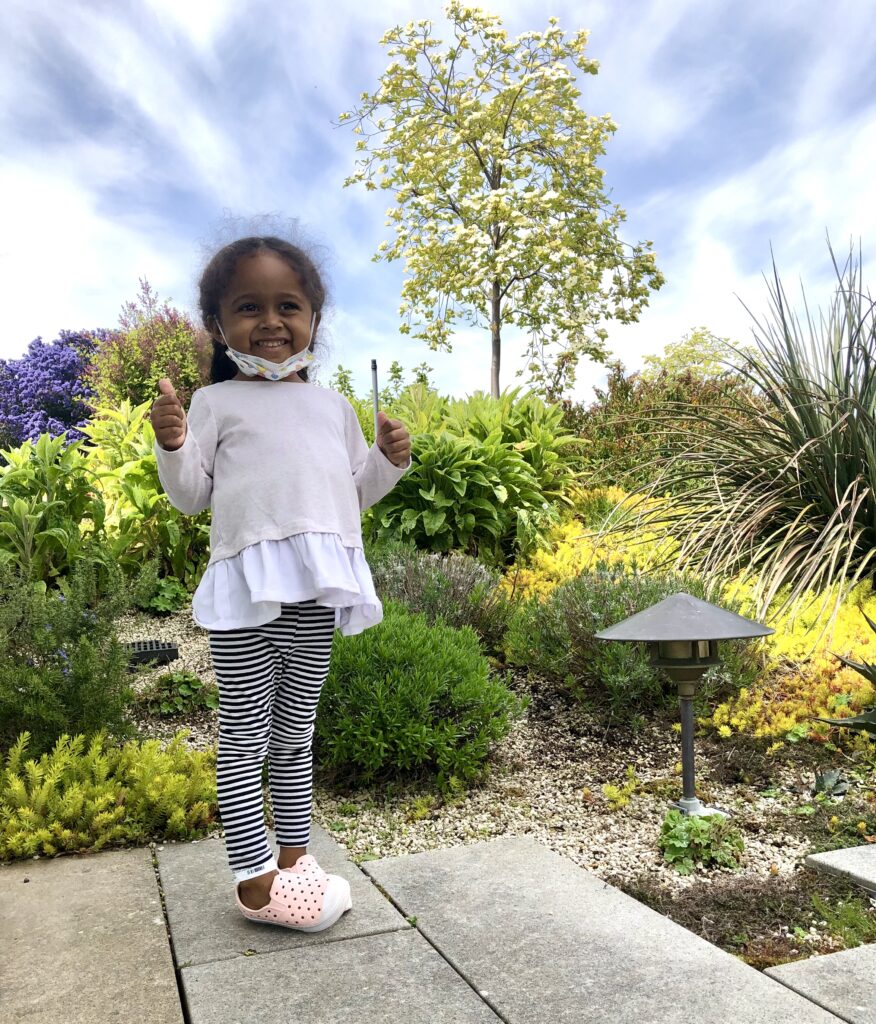
On November 18, 2021, a COTA fundraising specialist trained a team of volunteers eager to help the Mwamba family who were struggling under the weight of mounting transplant-related expenses while their wait for Ruby’s perfect liver continued. The COTA for Ruby Strong volunteers decided to launch the fundraising effort on Facebook the following Sunday, November 21st, to coincide with the anniversary of Ruby’s Kasai procedure. They hit the ground running and started using the tools and tips provided to start working toward the fundraising goal.
The Mwambas were very grateful for the training and support COTA offered their volunteer team. “Once we started working with COTA, we felt instant relief,” Melissa said. “Before Ruby was even transplanted, COTA worked with our volunteers and offered lots of advice and assistance about how to successfully fundraise. It was something that our family did not have to stress about, which was a blessing. COTA allowed us to focus on Ruby as we waited for her perfect liver.”
Over time, it appeared a living liver donor was not going to be found. As Ruby’s condition worsened and her cholesterol became extremely high, bumps and sores started to appear all over her body. But primarily they covered her hands, which made it increasingly difficult for her to hold things. Because her condition was worsening, the transplant team was able to get ‘exception points’ for her PELD score, raising it so her wait for a liver could be shortened.
Melissa can remember exactly where she was on April 19, 2022, when her phone rang. The call was from Seattle Children’s; the team had found the perfect liver match for Ruby. “It was exhilarating,” Melissa said. “My mind was not even comprehending what they were saying. Our wait was over. Excited and nervous, we made the four-hour trip the next day.” The family had anxiously waited more than 300 days for that phone call. Thanks to COTA, they did not have to stress over how they would afford to quickly get to Seattle or to worry about their living expenses once they arrived for what could be a lengthy stay.
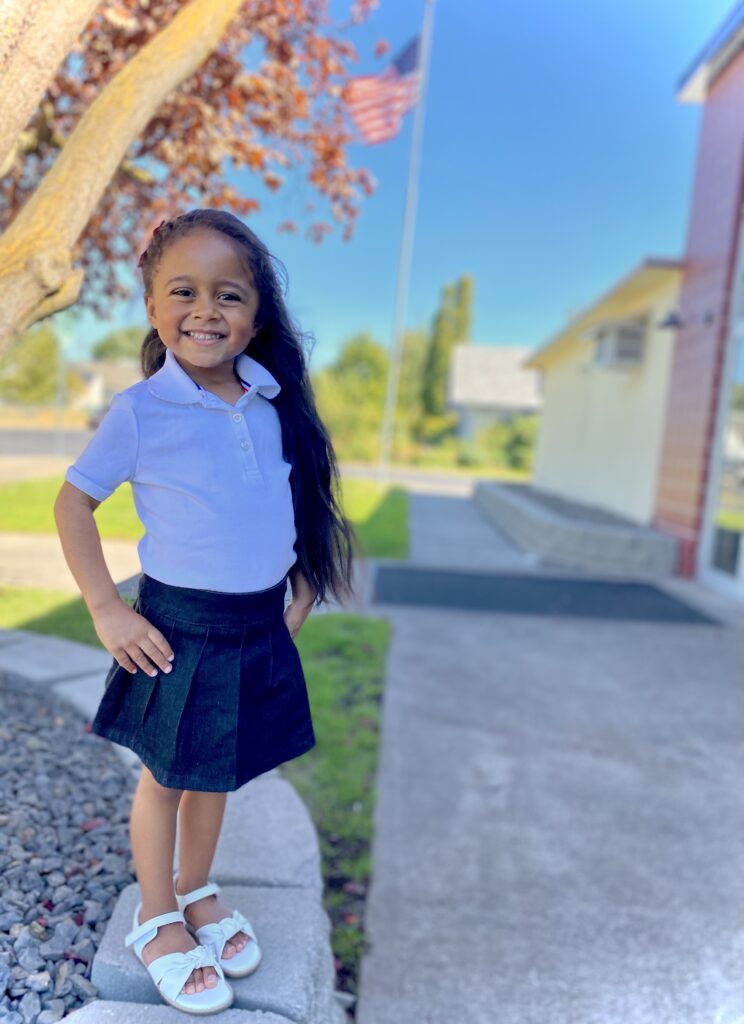
On April 23, 2022, Ruby endured an eight-hour surgery at Seattle Children’s to receive her new liver … and her second chance at life. The transplant was a success, and Ruby’s recovery was textbook. After her initial post-transplant recovery period, Ruby only had one bout of sickness caused by her immune-compromised state that put her back inpatient for two weeks.
Melissa said, “During our time at transplant, COTA was amazing. The staff worked very quickly to make sure our expenses were covered and they even helped book our travel and provided itineraries for our hotel, rental car and airline tickets for our post-transplant return home. Throughout a very stressful time, COTA made things easy and seamless.” The Mwamba family returned to their Spokane home on July 25, 2022.
In October 2022, Melissa was thrilled to share the yellow had disappeared from Ruby’s eyes and she was no longer in pain. “Ruby has so much more energy now, and she no longer has the bumps on her hands, which were causing so much pain. She is not sick anymore, and we no longer have to run to the Emergency Room like we were doing often before her transplant. Ruby is also sleeping well, has an increased appetite and is growing!”
COTA continues to travel this journey with the Mwamba family. Melissa explained they still have frequent appointments and check-ups with Ruby’s transplant team in Seattle. The associated costs of these trips are transplant-related expenses for which COTA funds can be used. This has been a big relief for the family given the distance from their home to the transplant center.
“Financial insecurity is one of the most daunting stressors in life,” Melissa said. “Adding a major organ transplant for a child adds additional stress. COTA has made it easier for us to breathe. We literally do not have to worry about the financial aspects of keeping our daughter healthy which include prescription medications, regular medical testing, and frequent lab work all of which add up very quickly when your child is post-transplant.”
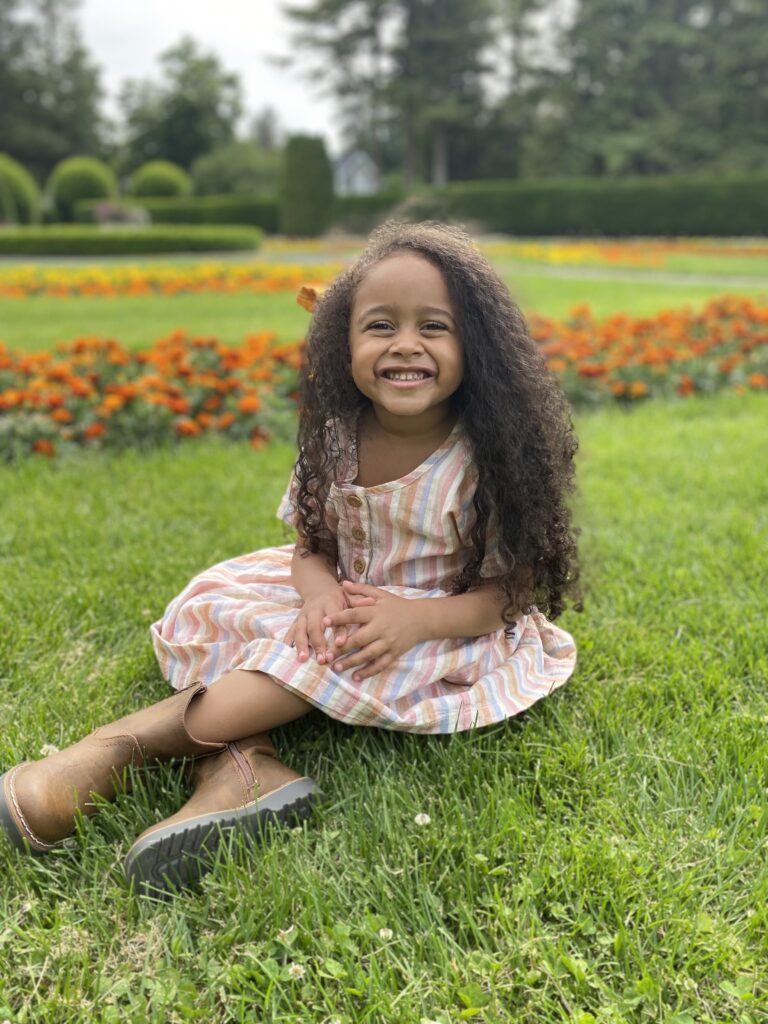
Today Ruby is thriving. She also has a new brother, Israel Lincoln, who is beloved by all of the Mwambas. Ruby’s favorite things are dancing, singing, doing crafts, helping make meals, reading books, playing at the park, going to church with her family, eating ice cream and pretending she is a doctor. She loves preschool and is thrilled that she is finally healthy enough to travel to Zambia Africa to meet her father’s family members in his home country.
When asked what she might like to be when she grows up, Ruby has quite a list of occupations under consideration … a dentist, a doctor, a pilot or a chef. Thanks to the gift of life, she can keep dreaming about a future with endless possibilities. Ruby was indeed aptly named given her post-transplant health, strength and vitality. Ruby will soon celebrate her 6th birthday. Birthdays are a big deal for the Mwamba family. Each year on Ruby’s birthday, Melissa prays for those children who were diagnosed with Biliary Atresia but who did not make it to their next birthday celebration. “Ruby’s new liver is the best gift … the ultimate gift … and we will celebrate it every year,” Melissa said.
August is National Multiethnic Donor Awareness Month. Many COTA families are waiting for their children and young adults to be matched to an organ or tissue donor. You can visit www.RegisterMe.org to indicate your wish to be a life-saving donor. Every day 17 people die waiting for an organ transplant here in the United States. Every eight minutes another person is added to the transplant waiting list. One organ donor can save eight lives and enhance over 75 more.
